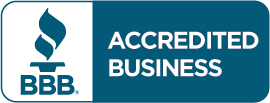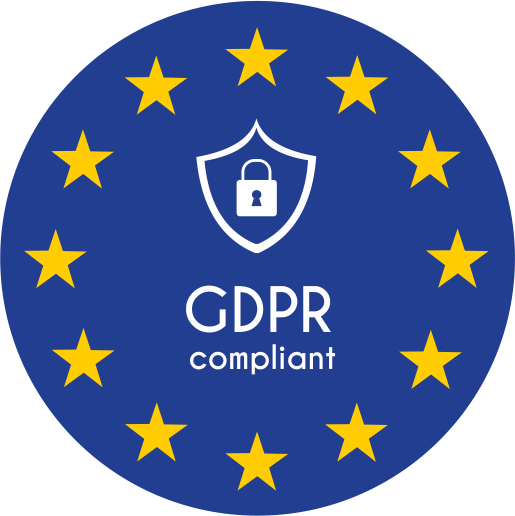by Charles Oropallo | Oct 16, 2020 | Internet, SEO
Almost all businesses get the usual spam SEO (Search Engine Optimization) phone calls.
Recently, one of my web clients took one. As a result of such calls, she emailed me. She expressed a lot of concern about having been told very negative things about her web traffic and website operation. It sounded like he was trying to get her to spend money. Money she’d never see a return on her investment for.
High-pressure sales tactics are something I have instructed staff in all our years in business to avoid. CharlesWorks policy forbids selling clients anything they don’t need. The difficulty is that there are so many spammers and scammers out there sending the same messages that people believe them. You can tell the same lie a thousand times and it’s still a lie.
Among the thousands of websites we’ve handled, her particular business is very unique – especially during the COVID-19 epidemic. Her classes are limited regarding how many people she can have in them at any given time. I told her that she is the one who knows best what should be on her website. And she is the one who knows best what she has to offer and when she can offer it.
The nature of her business, it seemed to me, is based more on a following she has developed over time. And she is limited as to how many people at a time she can physically handle. And – much as I hate to say this – COVID is going to remain a thought in many people’s minds – at least through this upcoming winter season. Things will change when a vaccine is widely available. However, common sense dictates it will be a while before everyone generally has access to it.
I suggested she shouldn’t spend more than she absolutely has to – to just keep her business operational. Those small business owners who can stay in business through this pandemic will be the ones who do great once they reach the other side of this.
It’s troubling that someone had pressured her enough to do work on her site that she became stressed over it. Sales people who proceed with such a hard sell attitude are clearly desperate for work. Desperate people are not working with their customer’s best interest in mind. My advise is to not talk to these people.
My suggestions for dealing with these really hard line sales calls are:
- “Remove me from your calling list.” Tell them to remove you from their calling list. Once you say those words, they are supposed to do so by law. I regularly tell spammers this, and they generally don’t bother to call back.
- Block their phone number. Block their number through whatever mechanism your telephone carrier has set up to do that. I do this on a pretty regular basis with the robocalls (which are actually illegal in most cases) and take a few minutes to report them at the https://www.donotcall.gov/report.html site.
- Visit the National Do Not Call Registry. Go to https://www.donotcall.gov where you can put your phone numbers on the National Do Not Call Registry. Mine have been on this for many years.
While these suggestions don’t stop all the spam calls you’ll get, they do stop many.
Every small business owner can and should review their website. They should ensure that everything is up to date for offerings and schedules. That only costs them a few minutes. Because CharlesWorks charges for changes by the minute, those kinds of changes only incur those minutes of charges.
I hope this is helpful to you!










by Charles Oropallo | Sep 2, 2020 | Domains, Internet, SEO, The CW Corner
We’ve published plenty of information in the past about domain names. We’re always learning a little more and how to explain information to out clients as time passes.
Whether your domain name is for personal use or for your business, we hope you find the following tips to be helpful.
Keywords
Having words pertinent to your business in your domain are increasingly important. Simplistically put, search engine algorithms (the math formulae used to compute the importance or value of words contained in your site) rank the importance of web sites according to words. Many businesses use a domain name to describe the name of their business and, in addition to that, own domains which contain keywords which are present in their website.
Association
If possible, you should use the name of your business as all or part of one of your domain names. This will make it easier for your clients or potential clients to remember you and to find you on the web (like CharlesWorks.com – CharlesWorks is the name of our business).
General Names
More general domain names are most likely already registered to other businesses (of course it doesn’t hurt to check with us first). It’s still a good idea to have more general name(s) associated with your business as one of your domains (that’s why we also own HostingNH.net, which will take visitors to our CharlesWorks.net site).
TLDs
TLDs stands for Top Level Domains. TLDs are the extensions on the tail end of the domain, such as .biz, .club, .co, .com, .net, .org, .ws, etc. The most popular TLDs are .com and .net. If you find that your domain is already registered, you might try for an alternate TLD (for example, RobinSnow.com was already taken, so Robin acquired and uses RobinSnow.net).
Hyphenated Names
Although you can obtain them, we recommend not using hyphens for your business domain name. Most people who are searching for your site will not use a hyphen. You are better off to try a different TLD or a variation of your domain name.
Variations
Variations can be an option if your general business name is already registered (for example ScrapbookCabin.com was not available to one of our clients, so at the time she registered NHScrapbookCabin.com instead).
Relinquishing or giving up existing names
We have seen many horror stories concerning giving up existing domain names. Sometimes one will end up having to get a similar domain name because control over the preferred name could not be gained. An example would be where another party has control over one’s .com name and the website is down and the webmaster cannot be reached or is non-responsive. If we are to take over the services we would recommend getting the .net to the original .com of the domain name if it were available. This allows us to get the site up and at least people can be sent to that site pending transfer of the .com when it is possible. In some cases it never became possible and the site will continue using the .net domain.
Once a domain name has been in service, traffic is generated to it. For that reason, many expired or relinquished domain names are snatched up. One situation like this in the Manchester NH area involved a church giving up a domain name they did not want to use anymore (it was a version of the Church’s name that had been in use for many years and they just decided to change it and dropped the domain name). It saved them about $15 a year. However, the embarrassment was priceless when a porn company acquired that domain name and put a porn site up on it. The annual cost of a domain is truly cheap insurance against one’s domain name being used for phishing, porn, Viagra, or whatever.
There is absolutely no obligation of any kind to click the red button below and check out your domain possibilities!

Already have a domain name? Click on the red button below to transfer it so we can get you online here at CharlesWorks!

Or CALL CharlesWorks at 603-924-9867 9 am – 5 pm Monday through Friday or go to https://CharlesWorks.com/contact outside of regular hours and we will help you find one!










by Charles Oropallo | Jul 8, 2020 | Do-It-Yourself, Internet, Monadnock Shopper News, SEO, Shopper News, The CW Corner, Website Development, Website Updates, WordPress
Engagement, in military terms, is described as a fight or battle between armed forces. In web terms, engagement could be thought of as the process of getting an idea across to accomplish a goal.
There are a couple major goals with websites, as I see it. One is to simply share information. Another is to sell products. Make no mistake about it – whether you are selling widgets or ice-cream or trying to increase your congregation – the goal is the essentially the same – getting people engaged.
The first, sharing information, definitely is a precursor to the second. I’d like to focus on the second here.
Websites that are more engaging with their visitors will encourage more sales. With that in mind, it follows that engagement is a result of information and aesthetics.
Aesthetics costs for a website can vary greatly. Graphic design can be time consuming. This equates to higher labor costs. Information in written form, however, is usually the least expensive part of website development. Text can usually be pasted into web pages. This is not usually as labor intensive. Having more information in text format on a website usually equates to more exposure to the public. This is because website visitors can arrive using search engines. And the search engines find your site based upon pertinent content – mostly text.
In a nutshell, if you want an engaging website – which will increase your probability of success on the web – make sure there is plenty of information in text form on it. Search engines will help get folks there and your aesthetics can do the rest.










by Charles Oropallo | Jun 24, 2020 | Do-It-Yourself, Internet, Monadnock Shopper News, SEO, Shopper News, The CW Corner, Website Development, WordPress
A popular website sales pitch over the past ten or so years has been about blogging. Many web developers believe that blogging is an absolute must to get found on the web. However, believing doesn’t necessarily make it a fact.
Whether blogging will be a benefit your particular web presence is complicated. There are a number of factors to consider.
A major factor is that blogging requires time to be effective. The time has to be spent by someone entering blog material pertinent to your business or topic into your website. Otherwise you have to pay someone to keep up with it.
Keeping blogs interesting to keep site visitors engaged is another ongoing endeavor. Site visitors won’t return if the material doesn’t hold their interests.
The real power of blogging lies with search engine placement. Search engines rank websites on how pertinent they are to a particular topic or search terms. Search terms are generally words or phrases people type into search engines when they are looking for something. The more pertinent – the higher the ranking. Having more pertinent material on a site increases ranking.
So when considering whether a blog is right for your web presence or not, bear in mind that a blog must be an ongoing, continuing effort. It may be just as effective to simply have a lot of static material on your site explaining details about all your offerings.










by Charles Oropallo | Dec 25, 2019 | Monadnock Shopper News, SEO, Shopper News, The CW Corner, Website Updates, WordPress
Web services providers are really not much different than most trades. Response times can vary widely. Most good tradespeople can give you an idea of when they are going to get a job done for you. If they’re too busy for you then you’d normally just find someone else.
One of the major concerns we hear expressed in the web services field is about the general lack of timely service. Before dealing with a web company you should know if it’s a one man show – which dictates whether they can respond quickly to most maintenance requests.
My belief is that small changes should be done within 3-4 work days – if not sooner. If a web company does not have staff to be able to do this in that time-frame, that should raise a red flag. A one person company will always have issues should several of its clients require service during the same time frame. One person cannot be truly reliable to be there every time you will need them.
Unfortunately for most, they don’t find out the service will be poor until they are experiencing it. Not to worry – just make the switch then. A good company has backup staff on board to see to it you are taken care of. Do what’s best for your business – deal with reliably staffed web companies who will have people to help you when you need it.










by Charles Oropallo | Nov 13, 2019 | Do-It-Yourself, Internet, Monadnock Shopper News, SEO, Shopper News, The CW Corner, Website Development, WordPress
I’ve mentioned SEO (Search Engine Optimization) throughout many articles. While it is important – I believe it’s the most abused area of website development.
 SEO scammers are excellent liars!
SEO scammers are excellent liars!It’s important for your business website to be found in the search engines. That is best and most inexpensively done by having pertinent material in your website so the search engines see your website as pertinent or closely related to a topic.
There are many unscrupulous individuals and companies out there selling just plain bogus SEO. It’s often impossible to discern the truth. There are no regulations or meaningful certifications in this field.
As an example – let’s say you receive a dozen Viagra spam messages in a month. Does that mean you need it? Certainly just because a number of spam messages are saying you need something doesn’t turn it into a fact.
Why would you believe the same about SEO regarding your search placements on the Internet? Our web clients are bombarded with spam and with phone calls saying they need this and that for their websites. Some fall prey to these sales pitches and some even go out of business as a result of spending hundreds of dollars each month on scams.
Your web developer should care about you as a client – should want you to be as successful as possible and not up-selling you right out of business.
The worst part of the SEO scams is they can oftentimes hurt your placement with the search engines.
Don’t fall prey to the scamsters selling these bogus “services”. Check with your web developer FIRST about such offers to find out if they are for real or whether you actually need them.
















 European Union General Data Protection Regulation Compliant
European Union General Data Protection Regulation Compliant